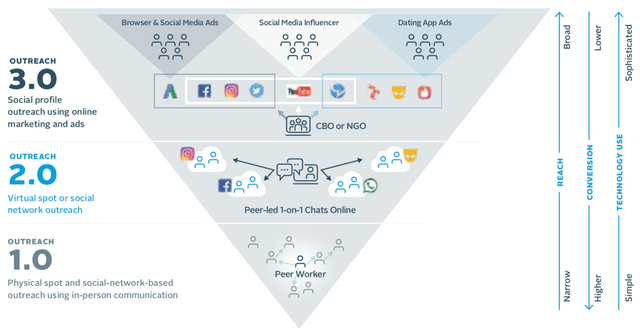Police become allies in protecting key populations
Everyone deserves to live free of violence: How HIV and GBV service integration can improve lives and effectively address twin epidemics

Three ways to leverage social media outreach in HIV programs
The LINKAGES legacy: What the project has meant for people, policies, and programming in nine countries
Data that make a difference: Strengthening data systems for key population-focused programs from the ground up
Walking the walk: LINKAGES and EpiC’s active response to gender-based violence

